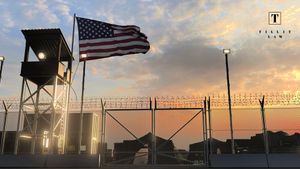In negotiated procurements, contractors must meet strict timeliness requirements when responding to the government’s requests for proposals (RFPs) or risk being excluded from consideration for an award. The Federal Acquisition Regulation (FAR) § 15.208 outlines the general rules for the timeliness of proposals in negotiated procurements, along with their relevant exceptions. Prospective contractors are responsible for submitting proposals in accordance with RFP instructions and ensuring that their proposals reach the designated agency office by the time specified in the solicitation. If the solicitation does not specify a time for receipt of proposals, FAR § 15.208(a) instructs offerors to submit their proposals by 4:30 PM local time for the designated agency office on the date the proposals are due. Proposals that are received at the designated agency office beyond the exact time specified for receipt of proposals are considered late and generally excluded from consideration of award. Also known in government contracts industry parlance as the “late is late” rule, the timeliness requirements for proposal submissions in negotiated procurements make it the contractor’s burden to ensure strict compliance.
However, as with most rules in federal procurement, the “late is late” rule has its exceptions. The first exception listed at FAR § 15.208(b)(1)(i) applies to proposals that are transmitted through an electronic medium authorized by the solicitation. This exception allows the consideration of the proposal if it is received at the initial point of entry to the government’s servers no later than 5:00 p.m., one working day before the date specified for receipt of proposals. The exception contemplates a situation in which the prospective contractor submits the proposal electronically at least one working day before the date on which the proposals are due, the proposal reaches the government servers but, for technical or other reasons, is not transmitted to the final government point of contact in charge of receiving the proposals.
The second exception to the “late is late” rule is described at FAR § 15.208(b)(1)(ii) and primarily relates to RFPs that require physical delivery of proposals. This exception allows the consideration of proposals that are received by the relevant government official(s) after the established time for receipt of proposals but are received at the government installation and under the government’s control before the time set for receipt of proposals. To benefit from this exception, contractors may establish the time of receipt at the government installation through evidence such as physical and electronic time and date stamps, documentary evidence of receipt, or statements of government personnel. The third and final exception of the “late is late” rule applies in situations when the government receives a proposal after the time set for receipt of proposals, but it is the only proposal received in response to the RFP. Finally, it is important to note that for all three exceptions described here, the government may still choose not to consider the late proposal in the exercise of its discretion as the contracting officer (CO) must first determine that accepting the late proposal would not unduly delay the acquisition.
While contractors may, on occasion, benefit from the exceptions to the “late is late” rule, experienced contractors understand that strict adherence to solicitation instructions regarding proposal submissions is necessary to ensure their proposals are included in the consideration for an award. When submitting proposals electronically, contractors should aim to submit their responses at least one working day before the date set for receipt of proposals in case of unforeseen technical issues. Contractors should also request read receipts or other electronic proof of delivery when submitting responses electronically. Similar documentary evidence should be requested from government personnel responsible for physically receiving proposals. Contractors should remember that when a proposal is received later than the specified time, the CO is typically required to promptly notify the concerned offeror that its proposal is late and whether the government intends to consider its proposal for award. All proposals that are considered ineligible for award for being late are required to be held unopened by the government until after the award and then retained with policies and procedures consistent with retention of other unsuccessful proposals. Notably, contractors excluded for submitting untimely proposals may protest the government’s exclusion decision. Therefore, contractors should properly secure all electronic or physical proofs of delivery as they may need to be produced as evidence in potential litigation.
This Federal Procurement Insight is provided as a general summary of the applicable law in the practice area and does not constitute legal advice. Contractors wishing to learn more are encouraged to consult the TILLIT LAW PLLC Client Portal or Contact Us to determine how the law would apply in a specific situation.





